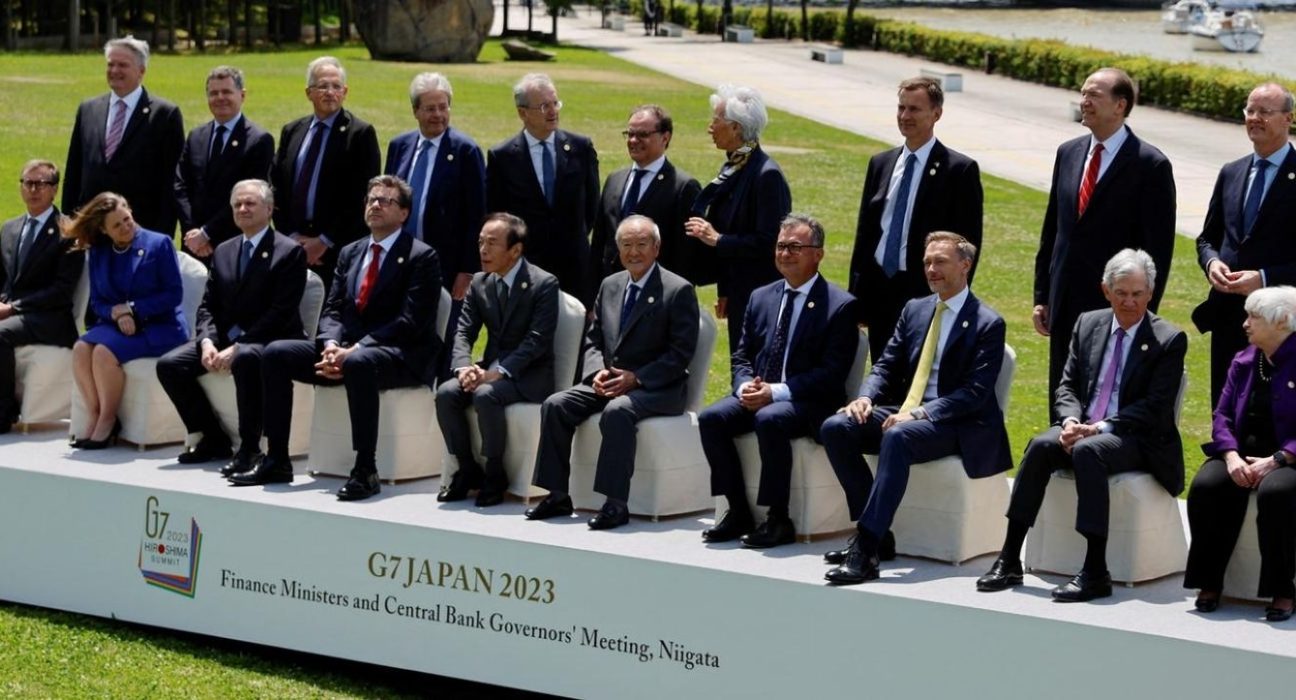The finance leaders of the Group of Seven (G7) nations have issued a warning about the mounting economic uncertainty as the world grapples with a potential default by the United States, the world’s largest economy. The G7 gathering, which took place in the Japanese city of Niigata, was overshadowed by concerns about the U.S. debt stalemate and the fallout from Russia’s invasion of Ukraine. The meeting came at a time when global policymakers are already preoccupied with U.S. bank failures and efforts to reduce reliance on China.
The G7 finance leaders highlighted the growing concerns about the state of the global economy, which has been hit hard by the COVID-19 pandemic. The pandemic has led to economic uncertainty and instability, and governments around the world have been struggling to address the resulting economic challenges. The G7 nations, which include the United States, Canada, France, Germany, Italy, Japan, and the United Kingdom, are among the largest and most developed economies in the world.
The G7 finance leaders focused on several key issues during their meeting, including the U.S. debt stalemate and the fallout from Russia’s invasion of Ukraine. The U.S. debt stalemate has been a major concern for global policymakers, as it has the potential to trigger a worldwide economic crisis. The U.S. government has been struggling to reach an agreement on raising the debt ceiling, which has led to fears that the U.S. may default on its debt obligations.
The G7 finance leaders also discussed the fallout from Russia’s invasion of Ukraine, which has led to economic sanctions and political instability. The invasion has had a significant impact on the global economy, as it has disrupted trade and led to higher energy prices. The G7 nations have condemned Russia’s actions and have imposed economic sanctions on the country in an effort to pressure it to withdraw its troops from Ukraine.
The G7 finance leaders also discussed efforts to reduce reliance on China, which has emerged as a dominant economic force in recent years. The G7 nations are looking to diversify their supply chains and reduce their dependence on Chinese goods and services. The move comes amid growing concerns about China’s economic practices, including its use of state subsidies and intellectual property theft.
In conclusion, the G7 finance leaders have issued a warning about the mounting economic uncertainty as the world faces a potential default by the United States and fallout from Russia’s invasion of Ukraine. The G7 nations have been grappling with a range of economic challenges, including the impact of the COVID-19 pandemic, U.S. bank failures, and efforts to reduce reliance on China. The G7 finance leaders discussed these issues and highlighted the need for coordinated global action to address the challenges facing the global economy.










